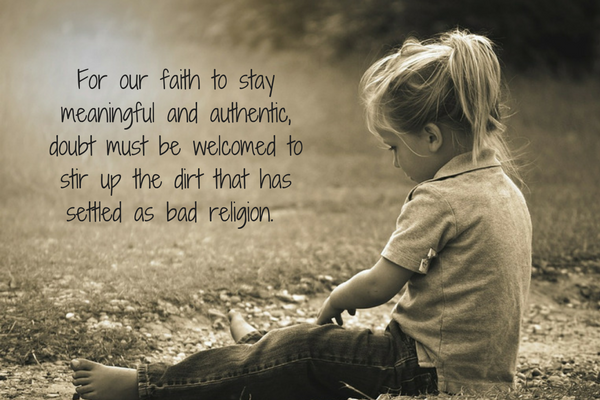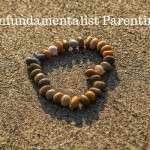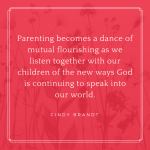
Image: Pixabay
So much anxiety abounds in how to raise strong Christian children in Christian parenting. When hard statistics as well as anecdotal evidence reveal young people leaving the church in droves, it is understandable Christian parents and institutions are wringing their sweaty hands trying to figure out how to solve the problem. Some suggest more robust biblical literacy in children, others recommend apologetics for kids, and churches scramble to make their services as child-friendly as possible.
But here is the one thing that I believe will help us raise children with the strongest, most resilient faith. You ready?
Stop Defending God. And Church. And Christianity. And Jesus. And the Bible. All of it.
Stop worrying about whether our children will believe in a good God, or that the Church is imperfect, or that the Bible is true or not true, literal or figurative, factual or poetic.
I know this sounds almost impossible for those of us who grew up Christian, and that is because we have been so conditioned to think of our faith as propositional. So we think if we could only insert the correct faith propositions into our children’s minds at the right moments, then we could produce the outcome of strong Christian children. We think Christianity is about believing the right way, and passing on our faith is to transmit right beliefs.
And now, with rising secularism and and increasingly pluralistic society, Christian parents are hard pressed from every side to equip our children to resist any message that counters our “right beliefs,” and the result is an increasing sense of helplessness and anxiety that the children are going to be lost to a new generation of secularism, or worse, “pop-spirituality”, Oprah style.
What if the best way to be a Christian parent is to simply let go of our religious certainty?
Does this mean we cease to give our children any kind of Christian instruction in their lives? Maybe. It depends. For Christian parents who have suffered abuse at the hands of toxic Christian leaders or institutions, it would be more healthy for them to not pass on something that has been harmful to themselves to their children.
But I think I am less concerned about the content of Christian instruction than I am about the posture. I’m not saying to stop offering the possibility of a good and loving God to our children, I’m saying stop defending that God.
I believe we can give our children a tightly-fisted doctrinal religion, or an open-handed vibrant spirituality. With the former, we delineate all the propositions of Christian faith, perhaps in the form of the Four Spiritual Laws, the Catechisms, or Evangelical tenants, close it off into our fist and require the children to accept the whole package, or better yet, embrace that fist and use it to fight against whatever doesn’t look like what has been enclosed. Listen, this isn’t all bad. I think investing in understanding theology and right thinking can make a world of difference in shaping ours and our children’s habits and ethics. Faith propositions aren’t bad in and of themselves, but it becomes a deterrent to healthy spirituality when we defend it like it is the only marker of salvation.
Alternatively, we can loosen our doctrinal grip and open our hands to offer our faith stories, wisdom, and spiritual experiences to our children. This is riskier. There is less control when we allow for the possibility for our propositions to fall through the cracks of our fingers. There is the vulnerability of rejection as our children are free to explore what we have offered and challenge our assumptions, call out our hypocrisies, and question our motives.
But I am convinced the open-hand model ultimately sets our children up for a more resilient faith because from a young age they will know that a relationship with God is one that can be transparent, tested, and called into question. Doubt and faith are two different sides of the same coin. Both are essential elements of our humanity to explore the big questions of life. Believing in a Good and Loving God necessarily compels us to grapple with deep suffering present in the world. That two-sided coin must twirl and twirl between its two surfaces to stay spinning. For our faith to stay meaningful and authentic, doubt must be welcomed to stir up the dirt that has settled as bad religion.
When we refuse to defend our faith, the only option to share it is to live it. Don’t be an evangelist or an apologist for our faith, just BE a Christian parent.
Honestly, much of modern evangelical Christianity has become indefensible. The marriage between it and nationalism is firmly cemented, and the overt moral hypocrisy has been publicly exposed, never to be justified in many young people’s minds.
The good news is it was never a good strategy to defend our faith to begin with. Now that the task has become impossible it’s a good time to abandon it. It’s time now, to honor our own integrity, respect our children’s autonomy, and live a faith freed from doctrinal obligations.
I don’t know if our children will accept our faith if we never try to defend it. I do know that refusing to defend God makes me a more faithful parent.
Sign up here to get updates on Unfundamentalist Parenting.
Join our Facebook Group, Raising Children Unfundamentalist.












